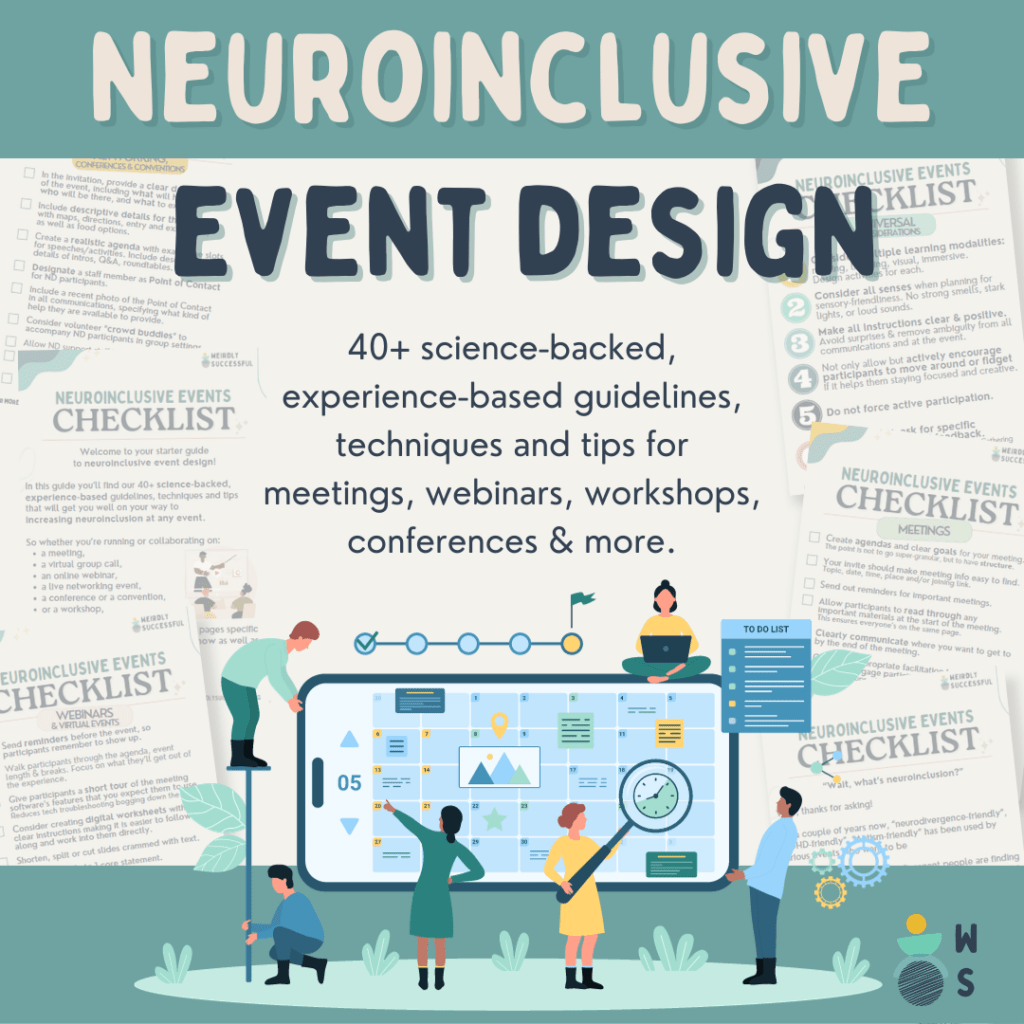What does neuroaffirming mean?
Neuroaffirming or neuro-affirmative refers to practices, approaches, or environments that recognize and affirm the neurodiversity of society and the neurodivergence of individuals.
An environment is neuroaffirming if it is designed to honour and celebrate the diverse ways in which brains are wired.
An approach cannot be neuroaffirming if it uses stigmatizing, moralizing, ableist or deficit-based language.
Stigmatizing language: uses negative labels, stereotypes, slurs to describe someone with a neurodivergent conditon.
Moralizing language: when one’s needs are judged as being personal failings, e.g. laziness, or proof of poor character.
Ableist language: any language that uses the baseline that humans with differences are less-than, and deems inclusion efforts as a waste of resources or unnecessary.
Deficit-based language: describes neurodivergent conditions based on what the individual lacks, e.g. “lacks normal social skills” or “attention deficit”. (Unfortunately, in many cases, the condition names themselves – like ADHD or ASD – contain D as in deficit/disorder.)
What is the difference between awareness and acceptance?
Awareness is not enough. Affirming neurodivergence means creating space for, valuing and empowering neurodivergent individuals, not just simply being aware that we exist.
What does a neuroaffirming approach look like in practice?
Neuroaffirming practices aim to create inclusive and supportive spaces where individuals with different neurological profiles are valued, respected, and understood.
This involves challenging societal norms or stigmas associated with neurodivergent conditions and promoting acceptance and accommodation instead.
Neuroaffirming has a dual approach of empowerment and support:
- One focus is on empowering individuals to embrace and showcase their strengths and talents,
- while also providing necessary support and accommodations to help navigate any challenges they may face.
Creating a neuroaffirming society cannot happen without listening to the neurodivergent community and asking what they need.
Neuroaffirming practices could include:
- creating accessible learning environments
- adjusting communication styles
- providing sensory-friendly spaces,
- and promoting inclusive policies and practices in various settings such as schools, workplaces, and communities.
What is the goal of neurodivergent acceptance?
Through neuroaffirming practices, the goal is to fight ableism and to foster a more inclusive and accepting society that recognizes the inherent value and contributions of all individuals, regardless of their neurological differences.
Why should society support neurodivergent individuals?
No two people are the same, and this is true for neurodivergent people as well. Supporting an individual in areas where they struggle enables them to flourish more in areas they enjoy doing or even excel at. Listening to their needs and wants, and figuring out how to help them without asking them to change who they are is key to a fulfilling and joyful life.
People experiencing general contentment about their life often have an effect on the wider society they live in — if they don’t have to fight for their basic needs, they have the mental and emotional energy to create a more welcoming, accessible, sustainable and fun environment for themselves and everyone around them.
This ripple effect has immeasurable benefits for society at large. Focusing on helping one single person never means that the benefits of them feeling better stop with them. The better one person is, the better all of us are.
Neuroinclusive policies are helpful for everyone, not just the neurodivergent community – see curb-cut effect.
Learn more about neuroinclusive event design
Grab our Neuroinclusive Events Checklist – a handy and hyper-condensed guide full of zero- to low-cost tips and techniques for webinars, meetings, networking events and workshops.
Download now from The Library, our free resource hub.




